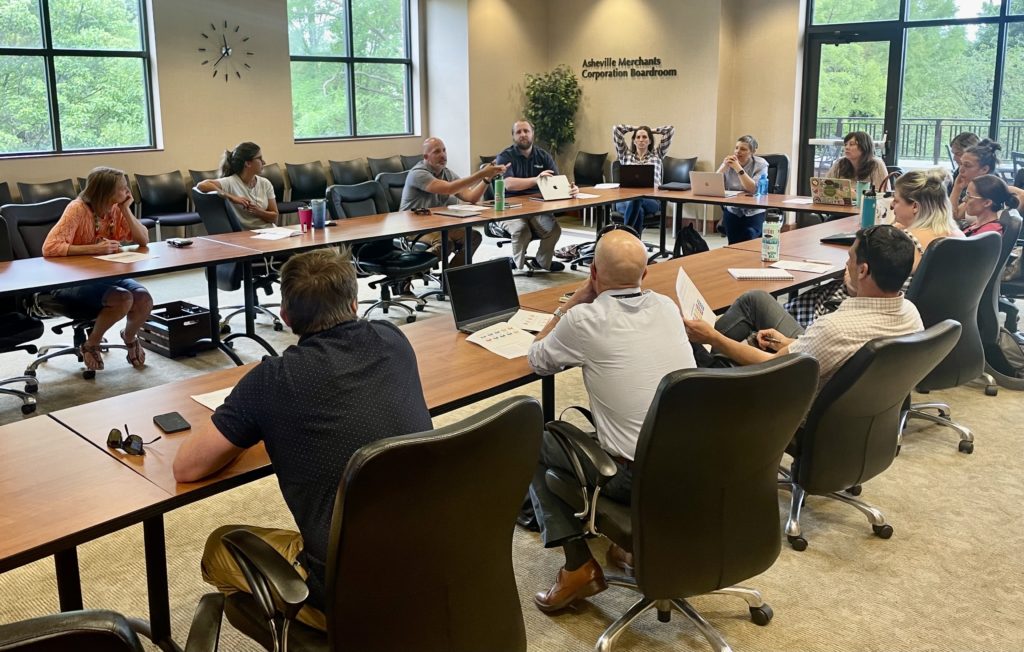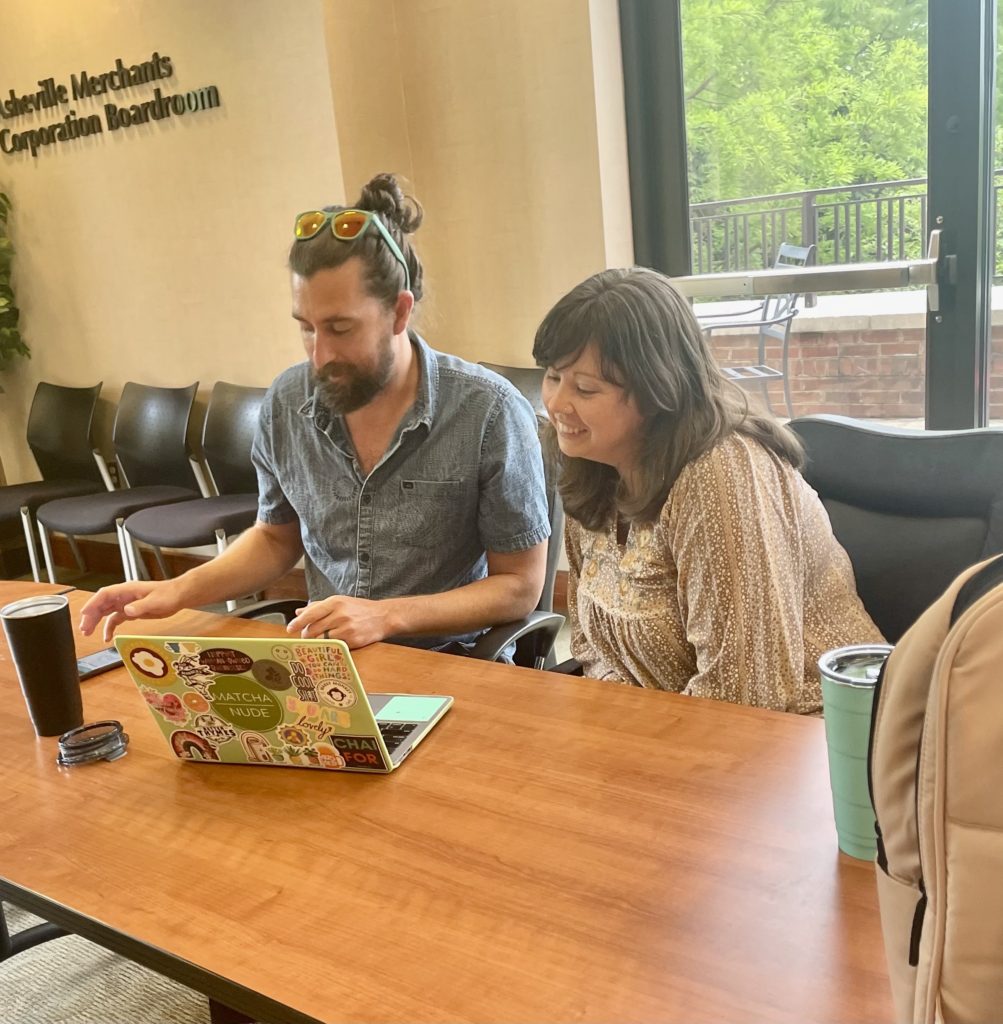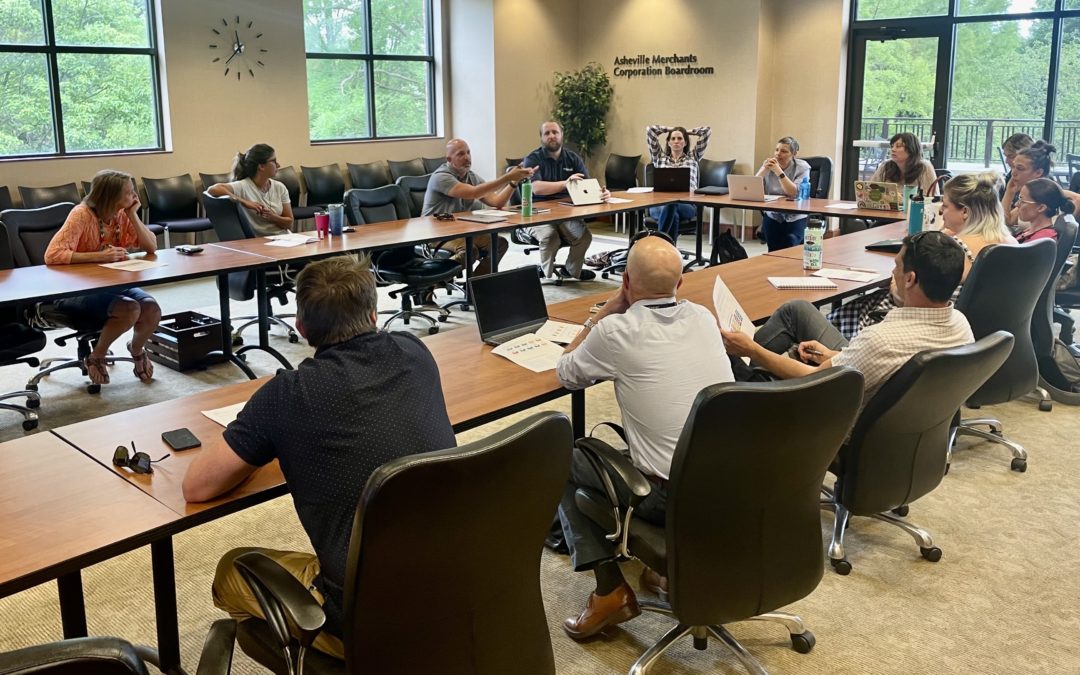Welcome to our series taking a Deep Dive into Venture Asheville. You can find all the posts in this series linked here:
How Venture Asheville Built a $150M Startup Ecosystem; A 7-Part Series
- Setting the Scene for a Small City Startup Hub
- Elevate, a mentorship-based incubator
- The MIT Venture Mentoring System
- Peer Facilitated Mentorship
- TheE13 and Experience Portfolios
- Engaging an Event-Driven Ecosystem
- Looking Beyond the $150M Impact
This post focuses on the Peer-Facilitated Mentorship, founder-to-founder relationships. Peer Mentorship is also the most popular part of our program.
In addition to Expert Mentorship, we find that founders can support founders in valuable, novel, and welcomed ways. We describe it the following way in our training:
Monthly Luncheons
We also host a monthly luncheon just for Elevate founders – lunch is provided, so all you have to do is show up.
Founders have the opportunity to network as part of the first hour, followed by a presentation based on collective needs. This wide range of topics could include:
- How to work with sales reps
- Intellectual property
- Valuations
- Compensation
- Management systems and styles
- Product development
- Fundraising
- Hiring and firing
- Digital marketing
- Guerilla marketing
- Pricing
- and more!
The second hour of the luncheon is for peer mentoring. This is your chance to share the wants and needs you have (except sales, you can’t say sales, that’s a non-starter) and receive objective feedback and guidance from founders like you, who’ve been where you are.

The next segment in this series will profile how we assess founders, using TheE13. Not to get ahead of ourselves, but the results from that state-wide survey necessitated putting more emphasis onto Peer Mentorship.
In our statewide study, we discovered that founders collectively rank lowest in Self-Efficacy, one’s belief in their abilities to accomplish a task. This is surprising, as founders present with confidence, full of bravery, assure of themselves and their decisions. However, when asked privately and confidentially, founders admit to being afraid of asking for help, terrified of appearing of not knowing something, and setting goals they can only reach without the help of others.
How can the opposite of what we think we know about entrepreneurs be true? If an entrepreneur was upfront about their fears or insecurities, who would invest in them, who would work for them, who would buy from them?
The weight of expectations is a burden for all entrepreneurs. It can be toxic. By offering founders a welcoming, friendly, supportive, and highly confidential peer setting, we create a space for them to be honest, to be vulnerable, to encourage asking for help. Remember, the data says they do not want to ask for help. Instead we use the “Wants/Needs Circle” inspired by the Entrepreneur Social Club in St. Pete, Florida by Michal Novilla.
Entrepreneurs are encouraged to share what wants or needs they have with the group. That’s it. Just not sales, as stated earlier, everyone needs sales it’s a non-starter. Instead entrepreneurs say things like:
- “I need a new Inventory Management System, our spreadsheets aren’t scaling with our company. What do you all use?”
- “I’m getting sued for trademark infringement! Who has dealt with this before?”
- “We’re going to our first trade show next month. How should we prepare?”
- “How do I know if I should fundraise?
- “We need to find a new factory space – anyone know of anything we can run down?”
The responses range from founders talking offline, a simple email intro, or a full on group conversation. No two meetings are the same. The founders always stay late talking with each other. Amazing things will happen in your community when you create an experience and encourager founders to support one another.

If you are the host of a peer group, you have three jobs:
- Make that room a safe space. Make sure everyone is welcome and encouraged to speak up. Make sure a-hole comments aren’t tolerated. Make sure the group agrees to confidentiality. Keep your standards of participation high.
- Keep the meeting moving. If certain folks begin to grandstand, take up too much time, or are interrupting others – step in as facilitator. Innocuously, some topics tend to take up a lot of time. Your job is to wrap it up and possibly to set up a small group session on that topic. Step in when you need to.
- Keep people fed and hydrated. You’ll increase turn out, and I think there’s a bit of satisfying a physical need like hunger, that once met, reinforces the safe space values. Hungry people aren’t good at sharing and helping others.
The next section details our data collection on Entrepreneurial Competencies, TheE13, the underlying assessment tool we use to chart growth in founders, identify program weaknesses and identify ecosystem opportunities.
How Venture Asheville Built a $150M Startup Ecosystem; A 7-Part Series

